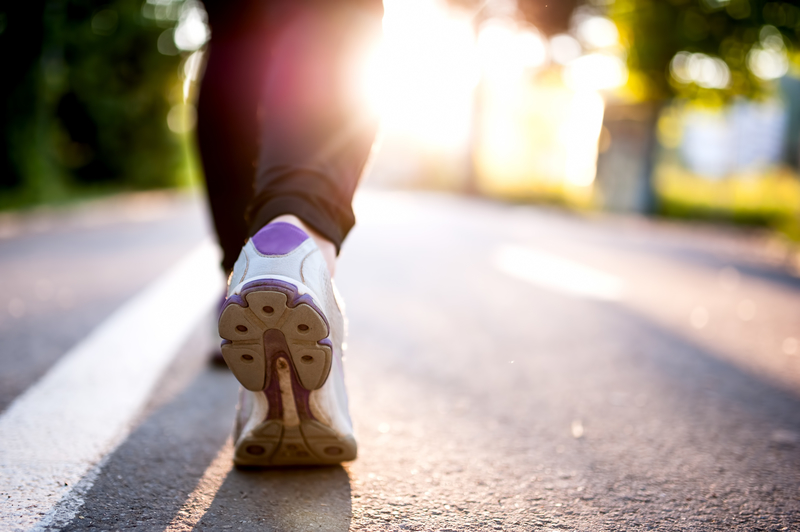Paule Miquelon, professor at Université du Québec à Trois-Rivières, is studying the self-regulation of physical activity behaviour – specifically, how the quality of motivation influences the adoption and maintenance of such activity.
Engagement in regular physical activity is an important part of a healthy lifestyle. Research shows regular exercise to be linked to the prevention of cardiovascular disease, type 2 diabetes, obesity, and hypertension. Public health guidelines for adults recommend the accumulation of at least 150 minutes per week of moderate-to-vigorous intensity physical activity in bouts of 10 minutes or more (World Health Organization, 2010). Unfortunately, in North America at least, available figures suggest that less than 15% of adults currently comply with these public health guidelines. Given these participation trends, it has become essential to understand why so few adults regularly practice physical activity, despite the documentation of beneficial effects on their health. Concerning this issue, studying the quality of motivation associated with physical activity behaviour or the reasons why individuals choose to practice physical activity seems highly relevant, given that among the barriers identified by individuals, lack of motivation and enjoyment are determining factors (Sallis & Hovell, 1990). A promising theoretical approach to understand how the quality of motivation influences the adoption and maintenance of physical activity is self-determination theory. According to this theory, the quality of individuals’ motivation affects the extent to which they will engage in, and persist with, behaviours. Central to the theory is the distinction between autonomous and controlled forms of motivation. Autonomous motivation is characterised by engaging in a behaviour with a sense of choice, personal endorsement, interest, and satisfaction. By contrast, controlled motivation is characterised by engaging in a behaviour with a sense of obligation and pressure (e.g., to satisfy externals demands, such as a doctor’s advice, or to avoid feeling guilty). Consequently, individuals who decide to exercise or to engage in a new physical activity (e.g., running) for autonomous motives are more likely to show commitment and sustained efforts to attain their goals (e.g., running 10 km/week for the next 6 months) than those who engage in this same activity for controlled motives.
Research agenda and objectives
Professor Miquelon’ research agenda focuses on the self-regulation of physical activity behavior among adults from the general population, as well as adults with type 2 diabetes. The aims of her research are twofold. A first objective is to examine until what extent adults who are autonomously motivated to practice physical activity (i.e., choosing to engage in physical activity for the inherent fun associated to it or for personally relevant outcomes such as being healthy) are able to initiate this behavior and also, to maintain it within time. In the same vein, she also studies and compares the motivational profiles of adults who are a regular exerciser, non-regular exerciser, and inactive. In addition, as the adoption and maintenance of physical activity can be challenging, despite the quality of one’s motivation, another aim of her research is to examine how planning a promising strategy for bridging the gap between intention and behavior, helps adults initiating and pursuing the practice of physical activity. Specifically, she examines how 2 conceptually distinct forms of plans, namely action and coping plans, contribute to physical activity initiation and maintenance. Action planning involves specifying the details of when, where, and how to act in the service of one’s intentions (e.g., “At the end of the workday, I will go to my aerobic session by bringing my training clothes with me to work”) while coping planning involves identifying how one will cope with potential barriers or obstacles that could get in the way of the goal striving process (e.g., “If I am tired after work, then I will take a short walk after dinner instead of doing aerobics”).
Recent results
Professor Miquelon and her colleagues have used longitudinal designs, as well as web-based surveys to verify the effect of one’s initial motivation towards physical activity on his or her behaviour maintenance, or relapse within different periods of time (3, 6, and 12 months later). Unsurprisingly, they found that people who showed greater autonomy in their decisions to undertake exercise showed more positive overall physical activity outcomes. This was true for a number of different measures of exercise success. Particularly, in one recent study, professor Miquelon and her colleagues were able to demonstrate that adults with type 2 diabetes who engage in physical activity for autonomous motives also reported a greater observance of physical activity guidelines. For more controlled motives, the research team found either no or negative associations with the outcomes of physical activity. These later results can be explained by the fact that for many people, particularly adults with type 2 diabetes, there is a lot of external pressure to exercise, which might be linked with low persistence. Furthermore, professor Miquelon and her colleagues also found that individuals who are autonomously motivated towards physical activity tend to spontaneously form more action and coping plans related to physical activity. This is most likely due to greater levels of interest and autonomy that characterises autonomous, compared with controlled, forms of motivation. With fitness, or lack of it, playing such a major role in public health, it is important that both medical practitioners and members of the public can analyse their own motivations, and hopefully use this analysis to create better outcomes.
Future Research
As recent studies have shown that individuals tend to indicate that they have engaged in more physical activity when asked to self-report this behaviour than when their behaviour is evaluated with an objective measure, Professor Miquelon’s future research plans are to supply self-reported measures of physical activity practice or relapses with objective tools, such as accelerometers. The objective will be to see if the relationship found between motivation’s forms and the various indicators of physical activity behaviour holds when the measures of behaviour are physiological.
KEY COLLABORATORS
Alexandre Castonguay, PhD candidate, Department of Psychology, Université du Québec à Trois- Rivières, Canada
Robert J. Vallerand, PhD, Department of Psychology, Université du Québec à Montréal, Canada
François Boudreau, PhD, Nursing Sciences Department, Université du Québec à Trois- Rivières, Canada
PARTNERS
Research Group on Applied Heath Issues (GIRAS), Université du Québec à Trois-Rivières, Canada
Research Laboratory on Motivational Processes (LIPROM, Université du Québec à Trois-Rivières, Canada
FUNDING
Social Sciences and Humanities Research Council of Canada
Fonds de Recherche du Québec – Santé
Fonds de Recherche du Québec – Société et culture
References
- Deci, E. L. & Ryan, R. M. (2000). The ‘what’ and ‘why’ of goal pursuits: Human needs and the self-determination of behavior. Psychological Inquiry, 11, 227–268.
- Miquelon, P., Castonguay, A. (in press). Motives for participation in physical activity and observance of physical activity recommendations among adults with type 2 diabetes. Canadian Journal of Diabetes. 10.1016/j.jcjd.2016.02.009.
- Miquelon, P., Chamberland, P.-E., Castonguay, A. (2016). The contribution of integrated regulation to adults’ motivational profiles for physical activity: a self-determination theory perspective. International Journal of Sport and Exercise Psychology. 10.1080/1612197X.2016.1155637.
- Miquelon, P. Chamberland, P.-E, & Castonguay, A. (2014, August). Motivational correlates and consequences of spontaneous action and coping planning within the context of physical activity. Poster presented at the 28th meeting of the European Health Psychology Society, Innsbruck, Austria.
- Sallis, J. F., & Hovell, M. F. (1990). Determinants of exercice behavior. In J. O. Holloszy & K. B. Pandolf (Eds.), Exercice and sport sciences reviews (Vol. 18, pp. 307-330). Baltimore: Williams & Wilkins.
- World Health Organization. (2010). Global recommendations for physical activity and health. Geneva, World Health Organization.
Professor Paule Miquelon
Associate Professor of Social Psychology
Université du Québec à Trois-Rivières
paule.miquelon@uqtr.ca
http://bit.ly/Paule_Miquelon
Please note: this is a commercial profile











